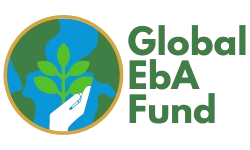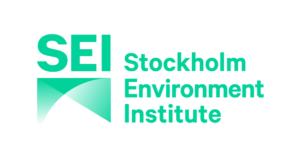EbA-enhanced Climate Field Schools for Climate Resilience (EECCLiRe)
Project Information
The project “EbA Enhanced Climate Field Schools for Climate Resilience (EECCLiRe)” supported coffee-growing communities in Bali and East Nusa Tenggara (ENT) in Indonesia. Bringing together scientists, government agencies, farmers, universities, coffee stakeholders, and grassroots organisations, the project aimed to enhance the adaptive capacities of coffee producers by integrating ecosystem-based adaptation (EbA) principles and approaches into Indonesia’s Climate Field Schools (CFS), supported by alternative technologies and sustainability standards. In doing so, the project helped smallholder coffee farmers adapt to the growing impacts of climate change, such as unpredictable rainfall, increased pests, and declining soil quality.
As climate impacts intensify, EECCLiRe leaves behind practical tools, local champions, and a strong foundation for continued collaboration.
Project Achievements
1. Reached 236 Direct Beneficiaries: Engaged 135 farmers and 101 extension workers through CFSs in Bali and East Nusa Tenggara.
2. Established Two Agroforestry Demonstration Plots: Created agroforestry learning hubs in two communities, serving local farmers and extension workers.
3. Expanded Access to EbA knowledge:
- The project’s main output was a roadmap titled “Brewing Resilience: Insights on Ecosystem-based Adaptation from Indonesia’s Coffee Sector,” which outlines how EbA and climate-smart practices—like agroforestry and biogas—can be integrated into future field schools.
- A policy brief assessed the outcomes of EECCLiRe, while another policy brief provided insight into adaptation and mitigation strategies for smallholder farmers.
- To support ongoing learning, the project developed an EbA agroforestry manual in Bahasa Indonesia and shared it with field school participants.
- Additionally, four videos and 10 reels on EbA were produced to capture and share the project’s experiences. These show the journey from field schools to farmer voices, highlight biogas solutions, and share insights from policy dialogues.
4. Installed 20 Biogas Digesters: A total of 27 units were installed across the project sites, with 20 still active at the end of the project. Use of these biogas digesters reduces dependency on forestry products, improves soil health from bio-slurry by-products, and lowers greenhouse gas emissions.
Key Metrics
SEI
Brewing resilience: Insights on ecosystem-based adaptation from Indonesia’s coffee sector
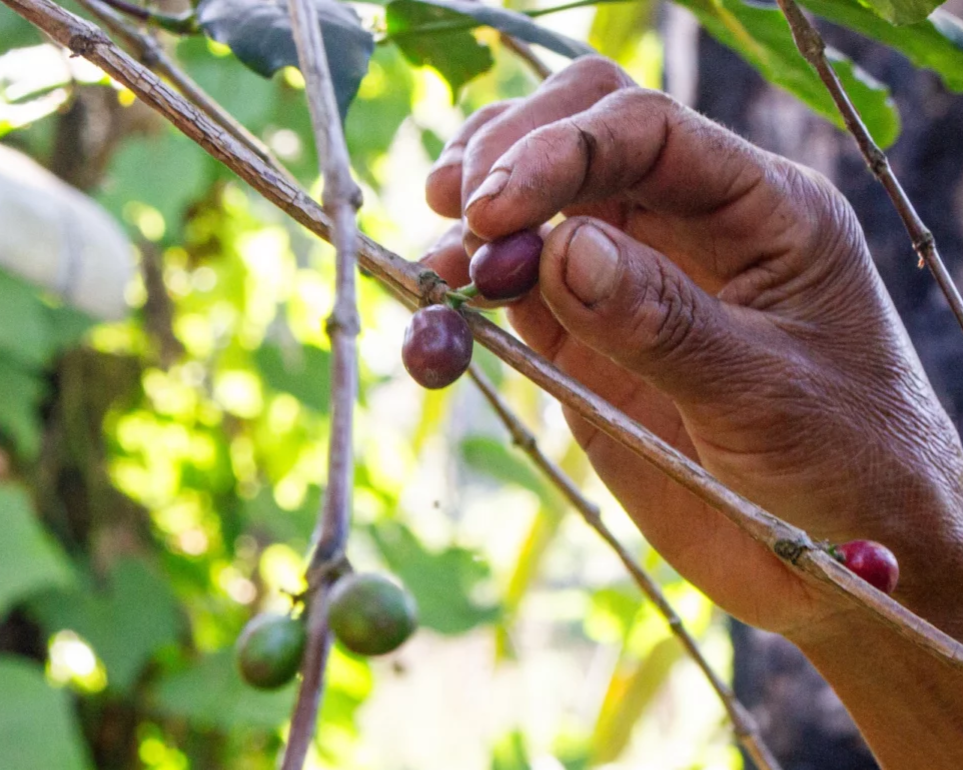
SEI
Brief: Making the most of climate field schools for adaptation, mitigation and rural livelihoods
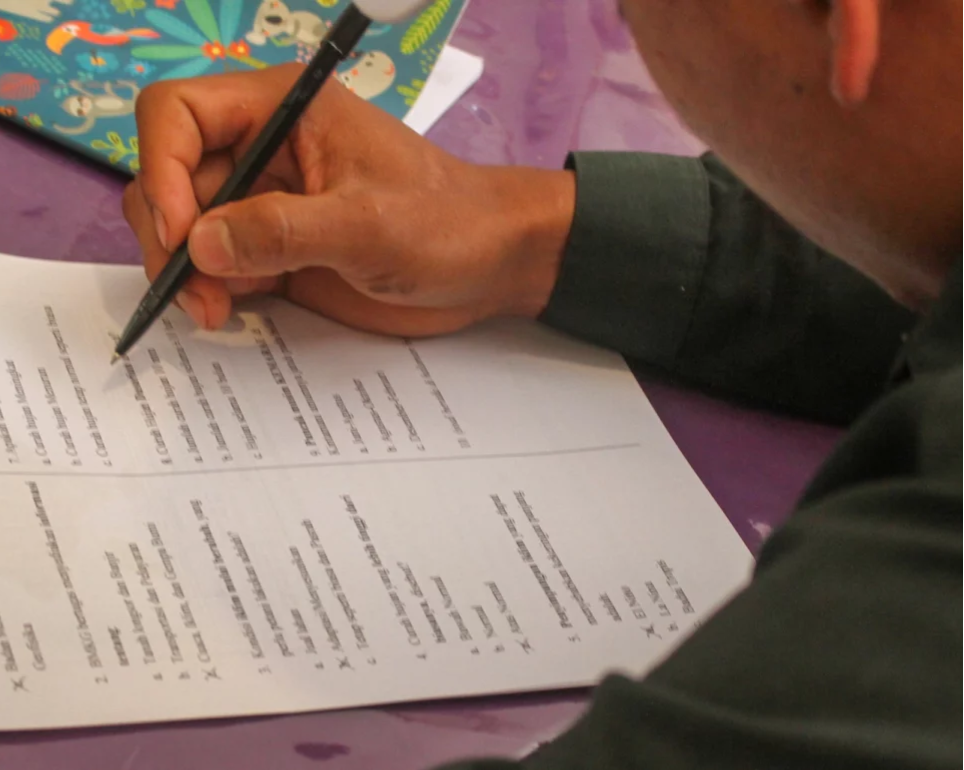
SEI
Local perspectives on global sustainability standards: Fairtrade and smallholder coffee farmers in Indonesia
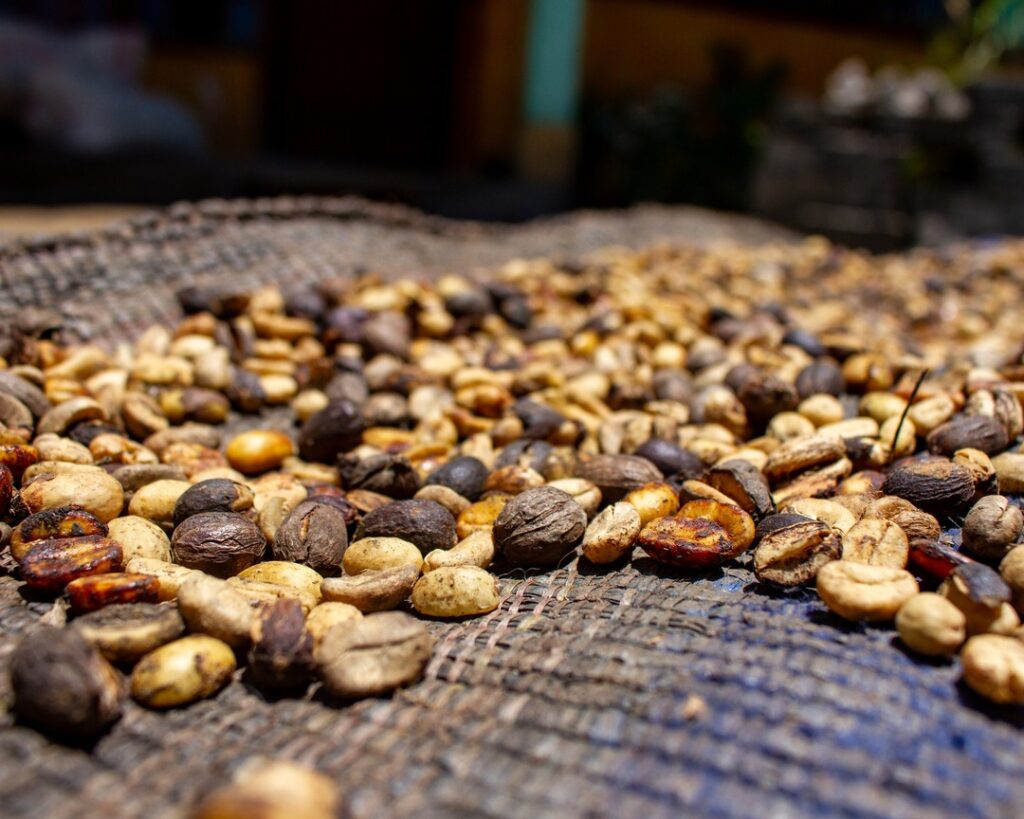
SEI
Enhancing climate resilience among Indonesia’s coffee farmers through Climate Field Schools
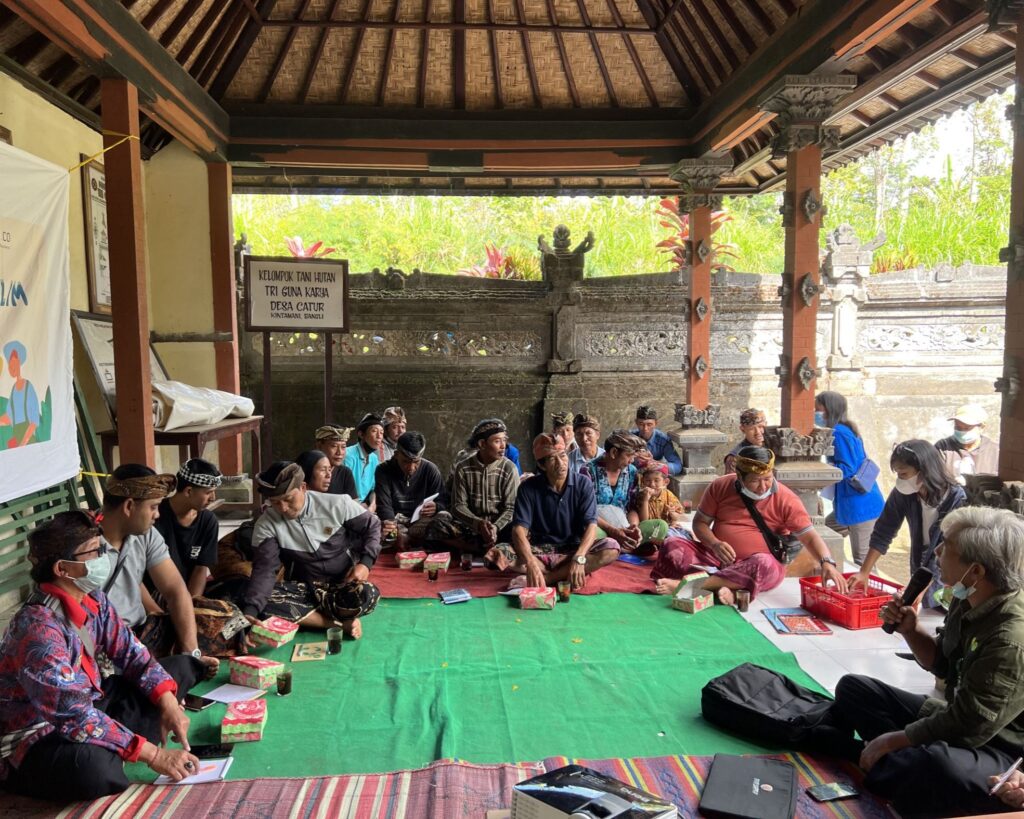
SEI
Enabling ecosystem-based adaptation for climate-resilient coffee farming in Flores, Indonesia
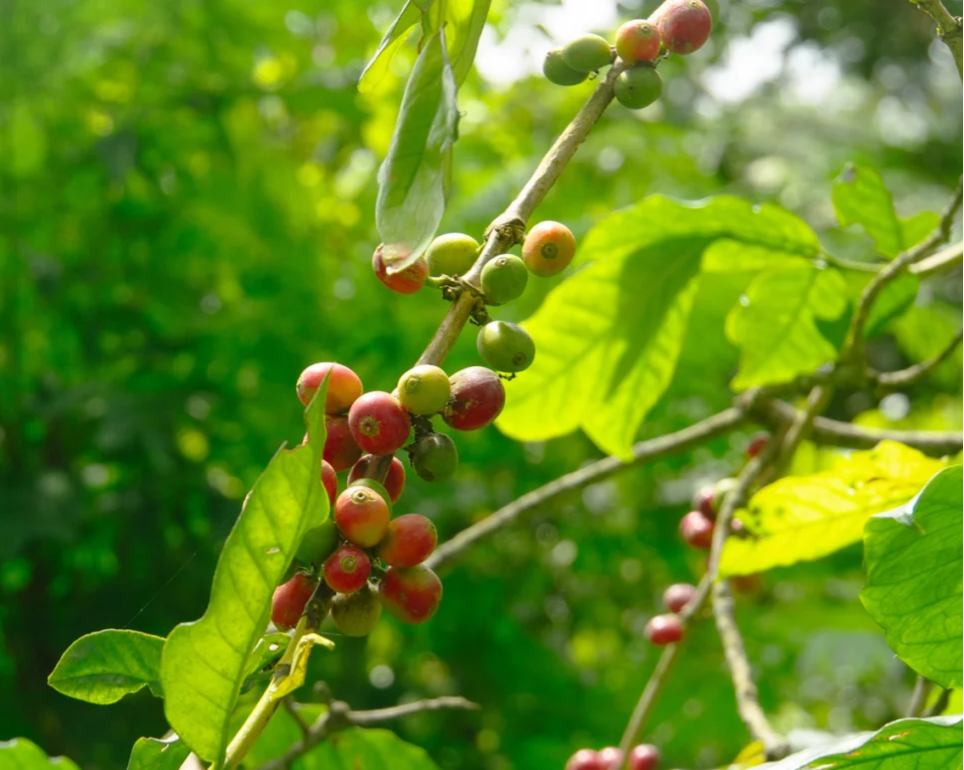
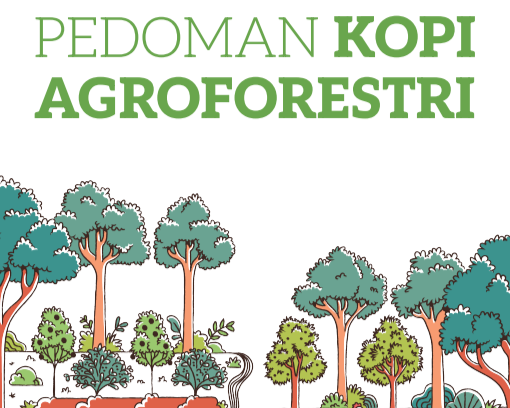
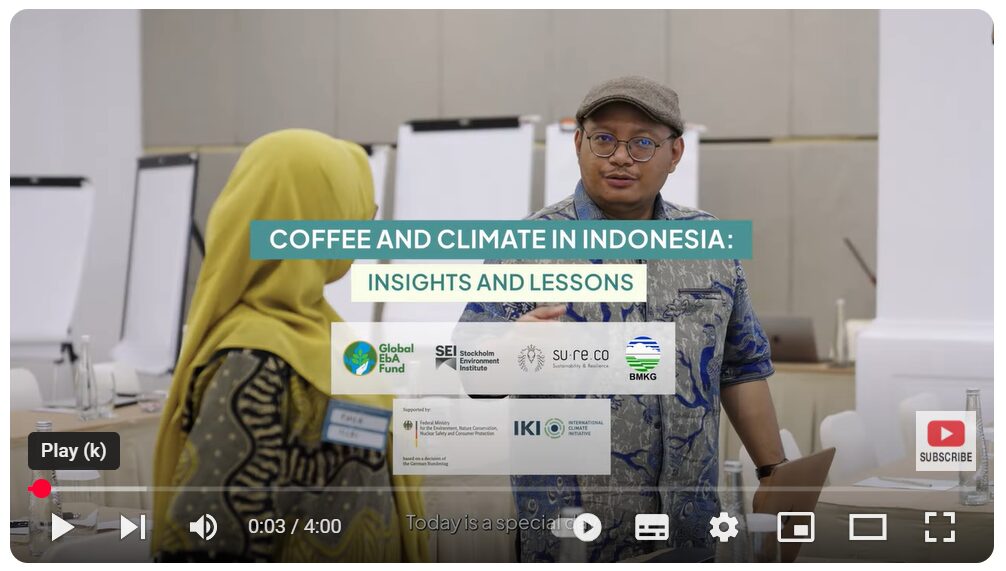
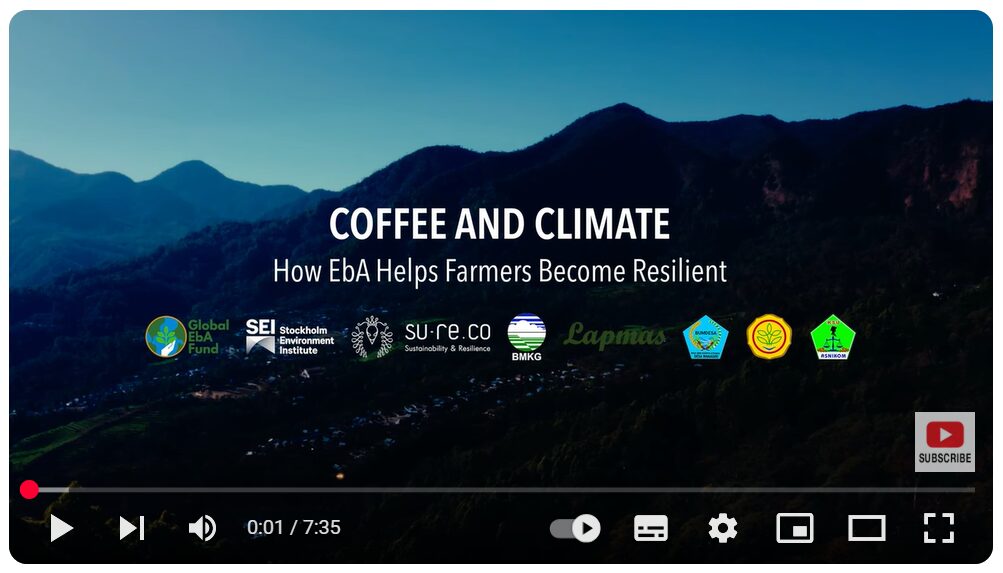
su-re.co
Land, Climate, Action: Insights from an Indonesian Policy Dialogue on Mitigation and Adaptation
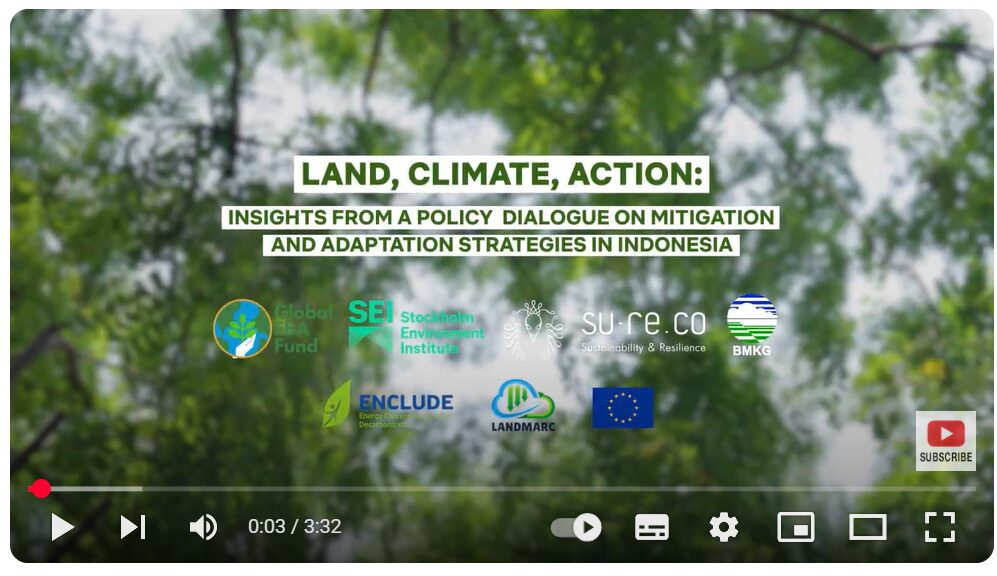
su-re.co
Brewing Resilience: Indonesian Coffee Farmers Responding to the Impacts of Climate Change

